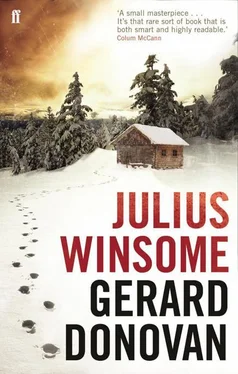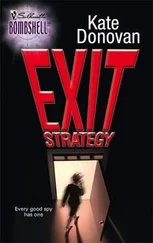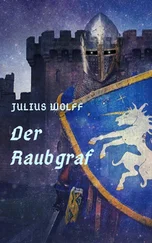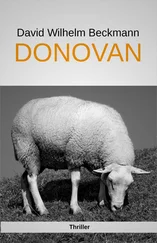Although he was gone for twenty years I had the novels and travel books, plays and short stories, all as he had left them, everything he was and knew still around me.
In the afternoon of that Monday I took one of those books to read, some Russian stories, and when I finished the story I strained a look out the window. Still no dog.
The clock again: Twenty minutes past three.
I WALKED INTO THE CLEARING AND SHOUTED.
Hobbes!
I hoped to see him run up behind me or jump out of the truck where he often slept during the day on the seat, where the windshield gathered the sunlight into a greenhouse, but another three shouts didn’t bring him. To get my mind off him I took more logs from the woodpile and stacked them by the door. A small knot draped loosely in my stomach and lay there even though I ignored it and selected another book from the shelves and sat by the window. An essay by Alexander Pope in a first edition, published in 1757 in London, one of ten volumes bound in their original leather, the catalogue index card inside the cover. No good. I could not lose myself in the detail, and what would have once given me pleasure seemed so many loose and tedious words in my mind, the pain of stones: “The Works of Alexander Pope Esq. In 10 vols. London: printed for A. Millar, Jan R. Tonson, H. Lintot, and C. Bathurst, 1757. With frontispiece and twenty-three engraved plates, separate title-pages to each volume printed in red and black, in contemporary mottled calf, red morocco labels on spines lettered in gilt.”
In the end I closed the book and sighed because the minutes joined at each side to pull the knot tighter.
The shot was too close, sounded wider than a rifle too. I replayed it and figured less than five hundred yards.
At forty minutes past three I walked to the edge of the woods again and cupped my hands and shouted his name. I heard the echo bounce off ahead like a skimming flat stone. Then I walked farther into the woods along a trail, a hundred yards, two hundred yards, and called again. It would soon be dark; this was the time when the deer came out. He may have seen one and ran after it, a pursuit that might take him two or three miles away. Often when I was out walking with him I’d see him dash off after a big buck without a hope of catching it, and I’m not sure what Hobbes would have done if he ever did catch up, and he was always back at the house before I was, waiting with his wagging tail and a parched mouth.
Since the hunting season had begun I tied an orange scarf around his neck as a sign to hunters, but it got torn off and I had not replaced it, something I regretted now as I made my way back. No use walking any more and fumbling my way along in the night.
At five minutes to four I arrived in the clearing and saw him lying in the flowers, bleeding, breathing, but barely. His eyes were open and he raised his head when he heard me. I ran to him and saw the wound, a shotgun.
* * *
He was still breathing when I got him to the veterinarian’s office in Fort Kent, a fifteen-mile drive, the first three miles along a dirt road and overhanging trees. I swung around potholes, holding him steady and keeping pressure on the wound, saying his name to let him hear a word he knew, felt the damp on my hand. I sped up as I reached the paved road to the town. The doctor was dressed in his white coat having dinner in his kitchen when I knocked on the door. His wife answered it, holding her hand to her eyebrows under the porch bulb while she looked me up and down.
My dog’s been shot, I said.
She looked to the truck with the door open idling in the driveway, saw Hobbes lying on the bench in the light. She clutched her collar and nodded, called to her husband.
A dog’s been shot.
I appreciated the brevity of what she said. This was a woman who knew the value of seconds. The doctor ran out and we carried the dog to his office, which was attached to the house, and laid him on the metal bench.
He was shot up close, he said.
I told him I could see that already.
No, it was very close, the vet said, inches. The buckshot is well into his back.
You mean the gun was touching him, I said.
The person knew the dog, patted him first maybe, to get him that close, he said.
Then the doctor said I should go with his wife because he worked better on his own. I asked about staying for the dog to see someone he knew, but he shook his head and said again for me to go.
His wife brought me to the kitchen and gave me a cup of tea and told me not to worry. She was a good woman and I liked her; I remembered her kindness to my father when he made the long trip with another dog, twenty years and more before, shortly before his own death. She recognized me now, I could see.
You’re Julius Winsome, she said.
I nodded.
He must have run after a deer to get so far from the house, I said.
They’ll do that, she said. Poor thing.
Or gone for a walk, his nose in the air, I said.
She said, They like to go for walks, just like humans.
A bell sounded and she said that we should go back next door. As we walked in, all I could see were bandages and blood. He had lost so much blood.
You have to be mighty cruel and then some to pull the trigger on a dog like that, the doctor said, and he moved until his hand was on my shoulder, and I knew what he was saying. They left and I heard his wife ask him how things were and why couldn’t he save him. His answer was gone as they closed the door and I stood there with my dog under the single light.
The little fellow looked at me and I held his head, and he lay his head on my arm and stopped breathing, as if he could let go like that, now that I was there.
IN TRUTH IT WAS A LONG WAY BACK TO THE CABIN. Hobbes lay beside me but I moved his head onto my lap for whatever comfort might be got for him even at this late stage. He had lost much of the heat from his body and the blood matted in his fur and the seat. That same night, shortly after getting back to the cabin, I ran the truck lights and buried him in the flower beds at the spot where I found him, a part I would see from the window when I looked out. It was hard to throw that first shovel of clay over his face, to see a hole gouged around the body that had so often ran after toys I’d thrown or shivered in dreams on the floor as he ran and barked. The shovel worked in and out of the light beams as the dirt hit him in the stomach, on his back, fell into his ears, his eyes, as I covered him along with the things that had made him: his walks, his rest, his eating when hungry, the stars he watched sometimes, the first day I brought him home, the first time he saw snow, and every second of his friendship, what he took with him into silence and stillness; I shoveled the whole world on top of my friend and felt the weight of it as though I lay with him in that dark.
After he was gone, I put the shovel in the barn and walked to the warm cabin and left him to stiffen. It rained that night, and it was cold after the fire went down. I lay in bed on Monday night listening to the wind whip around the house like a rope.
I WOKE ON TUESDAY MORNING TO A SPLINTER OF LIGHT through the window, the first time the sun did not rise on a living Hobbes. His grave was twenty feet from the cabin, too close not to notice even if you tried to walk past, and I couldn’t bring myself to go outside and see it, so I fumbled around inside the dark walls, walking down the lines of books, plucking them out from their tight positions along the shelves and dusting them in the shaft of light through the front window until the air filled with dust swirling in the morning rays; then I went into the spare room and pulled two boxes from under the bed, both marked “Alexandria,” and found inside them stacks of cards carefully wrapped in brown elastic bands.
Читать дальше












